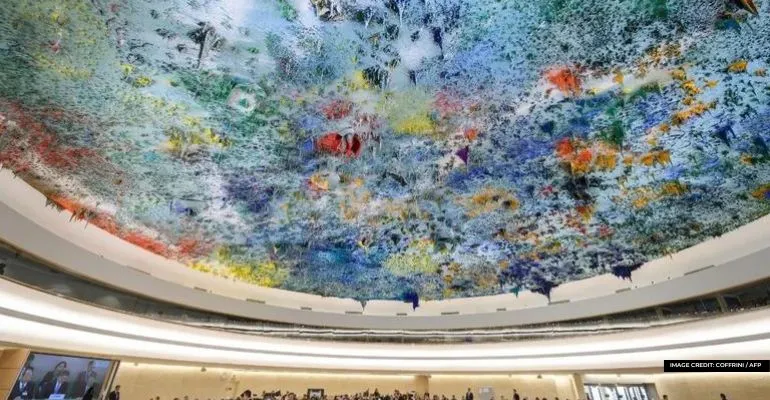Hong Kong’s strict national security laws are anticipated to be addressed during a UN review of China’s human rights record on Tuesday, January 16.
Beijing is expected to undergo close examination, particularly from Western nations, during its regular Universal Periodic Review (UPR). This review entails an assessment of the human rights records of all 193 UN member states every four to five years.
“It is very important to hold China to account,” a Western diplomat said.
A wide range of issues is expected to be brought up, including alleged attempts to erase cultural identity in Tibet, the implementation of the comprehensive national security law in Hong Kong in 2020 to suppress dissent following pro-democracy protests, and ongoing concerns in the northwestern Xinjiang region.
In Xinjiang, China faces accusations of detaining more than a million Uyghurs and other Muslim minorities. Beijing strongly denies these allegations, which were previously raised during its last UPR in 2018.
Subsequent to the previous review, additional UN documentation has been presented, including a report issued by UN rights chief Michelle Bachelet just moments before her term concluded in 2022.
China outright rejected this report, which underscored “credible” accusations of extensive torture and arbitrary detention, suggesting potential “crimes against humanity.”
However, facing substantial pressure from China, members of the UN Human Rights Council narrowly decided in October 2022 against initiating discussions on the report’s findings.
“We haven’t seen a really substantive discussion about the report,” said Sarah Brooks, Amnesty International’s deputy director for China.
Michelle Bachelet and other human rights advocates are optimistic that the Universal Periodic Review (UPR) could offer an opportunity for countries to endorse the findings and call for action from Beijing.
Sophie Richardson, the former China director at Human Rights Watch, suggested that Beijing should be subjected to specific inquiries regarding the well-founded apprehensions about potential “crimes against humanity.”
Additionally, there is an anticipation of inquiries about Beijing’s suppression of civil society, which has repercussions felt even in places like Geneva.
This year commemorates the 10th anniversary of the passing of activist Cao Shunli, who was arrested while trying to journey to Geneva before China’s 2013 UPR. Following several months of detention without charges, she became seriously ill and passed away in March 2014.
Sophie Richardson encouraged diplomats attending the UPR to address such issues. She emphasized that governments have a unique opportunity to pose questions and provide recommendations to Beijing, a privilege not available to the majority of people in China. Richardson stressed the importance of taking the UPR process seriously.
Also Read: China records huge population decline



Leave a Reply